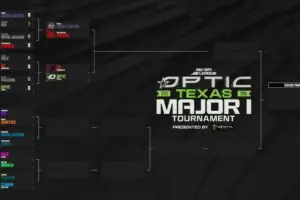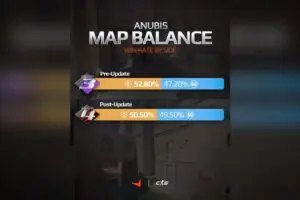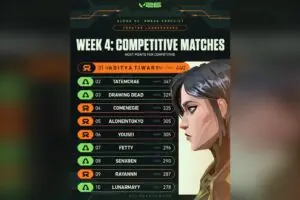Here’s something that no one could have predicted at the close of 2019, even with Gla1ve famously noting in an interview that players are starting to get burned out with constant tournaments. Yet as the world is firmly rooted inside of a pandemic (minus New Zealand and a few other outliers) esports have struggled to maintain cash-flow in an era where sports are simply nowhere to be found.
Counter-Strike shifted to an online format, following in the steps of the Overwatch League, players have stepped back from play to be replaced, and the results as play shifts from LAN to online matches has been noticeable, at the very least.
Teams that were dominating in LAN formats were suddenly shifting over to online play, where latency takes a massive toll in aim-duels and pre-firing corners. Add into the mix that Astralis has temporarily lost both their in-game leader Gla1ve and Xyp9x, and we knew Astralis were in for a bad time.
HLTV has recently released their Global Rankings, or seeds, after six months of play in 2020.
https://twitter.com/tflCx/status/1275116228374339588
For the first time in the past two years (and some change), Astralis has dropped out of a top-five spot in the HLTV rankings; they have landed at (GS#7).
Unfortunately, even that might just be a smidgen too high for Astralis’ current form as they’re currently absent of both Xyp9x and Gla1ve. At the moment the roster only holds four active players: ‘dupreeh’, ‘device’, ‘JUGI’, and ‘Magisk’.
After two difficult losses for Astralis versus NIP (1-2) and G2 (0-2), Astralis in their current form don’t look like a top ten team, much less a top ten. It’s unfortunate, as Astralis were easily the best in the world at the close of 2019. Rumors are circulating that Gla1ve, the indomitable in-game leader which many consider to be one of the best IGL’s in the world, will be returning to the line-up shortly.
Liquid also was dropped a few spots, finding themselves placed in (GS#11), marking the first time that they’ve fallen out of the top ten in years as well.
It’s theorized that the reason many of these teams are dropping in rankings is they simply cannot perform on the same level online, with latency, as they can perform in front of a live audience. Which is the root of why it’s figured that teams aren’t necessarily looking to shake their line-ups anytime soon, until teams can get back on a stage.
For the interim, however, it’s likely that the strangeness will continue as competition heats up in expectation of the yet to be canceled ESL One Rio Major.





